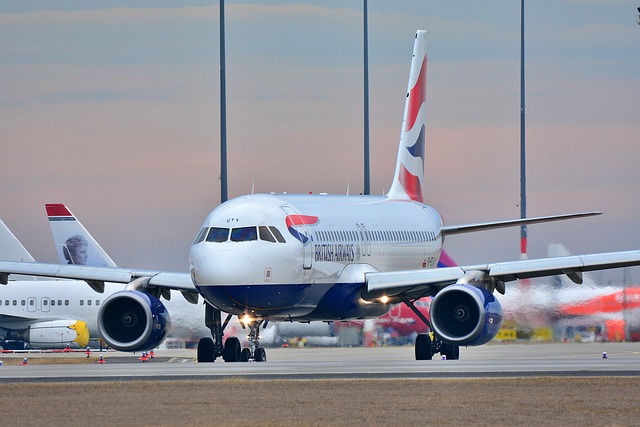Working at the Airport: General Insights Into Roles and Potential Benefits
Airports can offer a wide variety of job opportunities in dynamic and structured environments. From customer interaction to logistics support, airport roles may appeal to individuals who enjoy organized workflows and contact with international settings. This article explores the general nature of airport jobs and some advantages people might consider.

What are the typical roles available in airport environments?
Airports offer a wide variety of job opportunities catering to different skills and interests. Some common positions include:
-
Customer Service Representatives: These professionals assist passengers with check-in procedures, baggage handling, and general inquiries.
-
Security Personnel: Responsible for maintaining airport safety through screening procedures and surveillance.
-
Air Traffic Controllers: Highly skilled individuals who manage aircraft movements on the ground and in the air.
-
Airline Crew: Including pilots, flight attendants, and ground crew members.
-
Retail and Food Service Workers: Staffing airport shops, restaurants, and cafes.
-
Maintenance and Technical Staff: Ensuring the upkeep of airport facilities and equipment.
These roles represent just a fraction of the opportunities available, as airports also require administrative staff, logistics coordinators, and various support personnel to function efficiently.
How do team-based operations function in airport settings?
Airport operations rely heavily on effective teamwork and coordination across various departments. The interconnected nature of airport functions necessitates a collaborative approach to ensure smooth operations and passenger satisfaction.
For example, the departure of a single flight involves coordination between check-in staff, security personnel, baggage handlers, air traffic controllers, and airline crew. This interdependence fosters a strong team-oriented culture, where clear communication and cooperation are essential.
Many airport roles involve shift work, allowing for 24/7 operations. This team-based structure often leads to a sense of camaraderie among colleagues who work closely together to meet the demands of a fast-paced environment.
What exposure to multilingual and international settings can airport jobs offer?
Working at an airport provides unparalleled exposure to diverse cultures and languages. As global transit hubs, airports attract travelers from all corners of the world, creating a truly international atmosphere.
For those in customer-facing roles, this environment offers the opportunity to interact with people from various backgrounds and potentially utilize language skills. Many airports value multilingual employees, as they can better assist international travelers and contribute to a more inclusive passenger experience.
Even for those in behind-the-scenes roles, the international nature of air travel often means collaborating with colleagues and partners from different countries, broadening cultural understanding and global perspectives.
How do structured work schedules typically function in airport jobs?
Airport jobs often come with structured work schedules due to the nature of air travel operations. Many positions involve shift work to accommodate the 24/7 nature of airport activities. This can include early mornings, late nights, weekends, and holidays.
While this may require flexibility, it can also offer certain advantages:
-
Predictable Schedules: Many airport roles operate on fixed rotations, allowing employees to plan their personal lives around their work commitments.
-
Overtime Opportunities: The constant demand for airport services can lead to overtime options for those seeking additional income.
-
Work-Life Balance: Some employees appreciate the ability to have weekdays off when working weekend shifts, allowing them to run errands or attend appointments during less busy times.
-
Shift Differentials: Many airport positions offer premium pay for working less desirable shifts, such as overnights or holidays.
What unique aspects of workplace dynamics exist in transportation-related industries?
Working in a transportation hub like an airport comes with its own set of workplace dynamics. The fast-paced nature of air travel can create a high-energy work environment where quick decision-making and adaptability are valued.
Safety and security are paramount in airport operations, which often leads to a strong culture of compliance and attention to detail. Employees must be prepared to follow strict protocols and remain vigilant at all times.
The cyclical nature of air travel, with peak seasons and off-peak periods, can impact workload and staffing needs. This can sometimes lead to periods of intense activity followed by quieter times, requiring flexibility from employees.
What are some potential benefits of working at an airport in Hong Kong?
Hong Kong International Airport, one of the busiest in the world, offers unique opportunities for those seeking airport employment. Some potential benefits include:
-
Career Growth: The size and scope of operations at Hong Kong’s airport can provide diverse career paths and advancement opportunities.
-
International Exposure: As a major global hub, working here offers extensive interaction with international travelers and businesses.
-
Transportation Perks: Many airport employees enjoy discounted or free travel benefits, which can be particularly valuable given Hong Kong’s strategic location in Asia.
-
Stable Employment: The essential nature of airport operations often leads to job stability, even during economic fluctuations.
-
Cutting-Edge Technology: Hong Kong’s commitment to innovation means airport employees often work with advanced systems and equipment.
Working at an airport can offer a unique blend of challenges and rewards. From the diverse range of available roles to the structured yet dynamic work environment, airport jobs provide opportunities for those who thrive in fast-paced, team-oriented settings. The exposure to international cultures and the potential for career growth make airport employment an attractive option for many job seekers. While the demands of shift work and the need for constant vigilance can be challenging, the sense of purpose in facilitating global travel and commerce can be highly rewarding for those drawn to the aviation industry.




